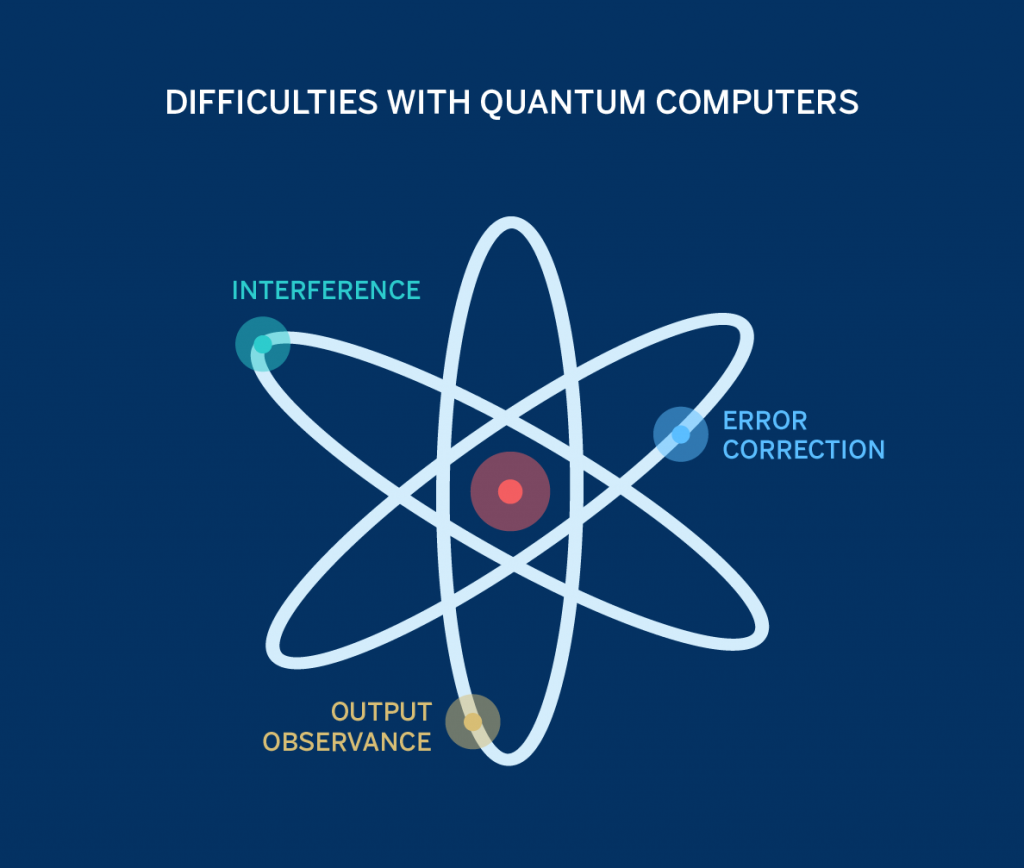Introduction
Quantum computing is no longer confined to the realm of science fiction; it’s a rapidly advancing field with the potential to change the way we solve complex problems. The power of quantum bits, or qubits, to exist in multiple states simultaneously gives quantum computers an edge over classical computers for certain tasks. However, realizing this potential comes with a set of significant technical hurdles. In this article, we’ll explore the challenges faced by the quantum computing community and the innovative solutions they are pursuing.
- Qubit Stability
One of the fundamental challenges in quantum computing is achieving and maintaining qubit stability. Unlike classical bits, which are either 0 or 1, qubits exist in a superposition of states. This means they are highly sensitive to external factors like temperature, electromagnetic fields, and even cosmic rays. Any interference can cause the qubit to collapse into one of its states, leading to errors in calculations.
Researchers are working on developing better qubit materials, such as superconducting circuits and trapped ions, to enhance stability. Moreover, quantum error correction codes are being devised to mitigate the impact of errors and improve the reliability of quantum computations.
- Scalability
Quantum computers are still in their infancy when it comes to scalability. Building larger quantum systems with more qubits is a non-trivial task. As the number of qubits increases, so does the complexity of maintaining qubit interactions and minimizing interference. Achieving the fault-tolerant quantum computers required for practical applications demands overcoming this scalability challenge.
Quantum engineers are exploring various approaches to scaling quantum computers, including 3D qubit architectures, topological qubits, and advanced cooling techniques. These innovations aim to make it easier to build and control larger quantum processors.
- Quantum Decoherence
Quantum decoherence is a phenomenon in which qubits lose their quantum properties and become classical due to interactions with their environment. This is a major hurdle for long quantum computations, as the qubits need to remain coherent for extended periods. Decoherence times are typically very short, on the order of microseconds, making it challenging to perform complex calculations.
Researchers are developing methods to extend qubit coherence times. This involves isolating qubits from their environment, reducing noise, and employing error-correcting codes. By increasing the coherence time, quantum computers can tackle more intricate problems before errors accumulate.
- Quantum Algorithms
While quantum computers have the potential to excel in certain applications, developing quantum algorithms that outperform classical algorithms is a formidable challenge. Quantum algorithms take advantage of the unique properties of qubits, such as superposition and entanglement, to perform computations more efficiently. However, designing these algorithms requires a deep understanding of quantum mechanics and mathematical ingenuity.
Progress in quantum algorithm development is ongoing, with breakthroughs in fields like cryptography, optimization, and quantum simulation. As our understanding of quantum computing grows, we can expect more innovative algorithms to emerge, further justifying the pursuit of quantum technology.
- Quantum Hardware Constraints
Quantum hardware is still in the experimental phase, and building and maintaining quantum devices can be expensive and complex. Traditional semiconductor fabrication techniques cannot be directly applied to quantum systems. Additionally, achieving the extremely low temperatures required for some quantum processors presents engineering challenges.
Researchers are constantly refining quantum hardware designs and developing novel manufacturing processes to make quantum computing more practical. Innovations in cryogenic technology and the development of quantum computing-as-a-service platforms are helping democratize access to quantum resources.
Conclusion
Quantum computing holds immense promise, but it’s not without its share of technical hurdles. From qubit stability and scalability to quantum decoherence and algorithm development, researchers are working tirelessly to overcome these challenges. The future of quantum computing is bright, and as these obstacles are surmounted, we can look forward to a new era of computing that will revolutionize industries and solve complex problems previously thought insurmountable. Quantum computing is no longer a matter of “if” but “when,” and the journey to overcome these technical hurdles is well underway.



